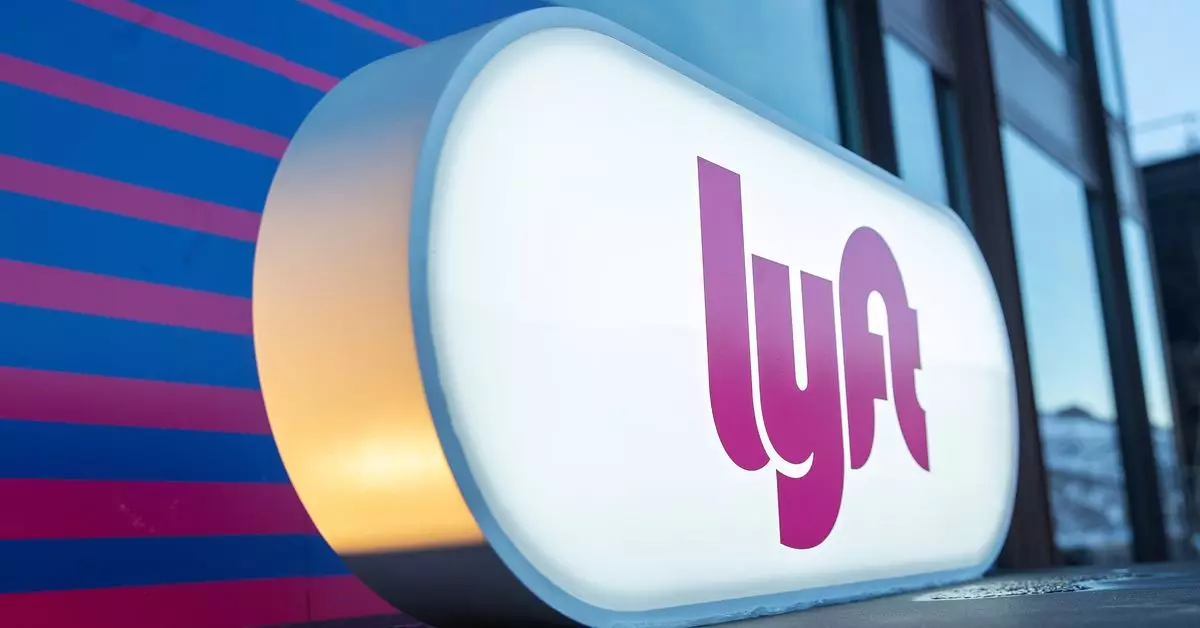In a significant move for consumer protection and labor rights, the Federal Trade Commission (FTC) recently announced that Lyft, a well-known rideshare company, has reached a settlement worth $2.1 million. This settlement stems from the FTC’s findings regarding misleading advertising practices concerning driver earnings. The FTC’s investigation revealed that Lyft routinely advertised potential earnings based on the top earnings of its best-performing drivers rather than presenting a realistic outlook for the average driver. This article will delve into the implications of this settlement and how it reshapes the narrative around gig economy transparency and driver expectations.
One of the most alarming aspects of Lyft’s advertising strategy was its tendency to claim that drivers could earn “up to $33” per hour in cities like Atlanta. However, this figure was not representative of the average earnings that most drivers could realistically expect. Instead, it relied on inflated statistics based on the earnings of the top 20% of drivers, creating unrealistic expectations for potential recruits. Furthermore, Lyft often included tips in these advertised figures, leading to what the FTC deemed a substantial overestimation—by as much as 30%—of the actual earnings received by the average driver.
Such misleading representations not only distort the financial reality faced by drivers but also impact recruitment and retention within the gig economy. Prospective drivers, enticed by the promise of high earnings, may undergo significant disappointment upon realizing that their actual compensation falls short of these inflated claims. This disconnect has broader implications, as it could lead to higher turnover rates and a less stable workforce, which ultimately diminishes the reliability of the service provided by rideshare companies.
Chair Lina M. Khan of the FTC has emphasized the organization’s commitment to combatting deceptive advertising, stating that it is illegal to mislead workers about potential earnings. The FTC intends to utilize its regulatory tools to ensure accountability among businesses and protect the interests of American workers. This settlement comes on the heels of a broader crackdown by the FTC on gig economy companies, which are increasingly under scrutiny for unfair and deceptive practices. Companies like Lyft and its main competitor, Uber, have been the focus of labor regulations at different levels, particularly concerning compensation and working conditions for drivers.
Beyond the FTC’s actions, several states have begun putting laws in place to improve the working conditions of rideshare drivers. For instance, in Massachusetts and New York City, recent legislation mandates a minimum wage for these workers, emphasizing the evolving legal landscape that affects the gig economy. However, these laws have provoked frustration among drivers, particularly in New York City, where companies reportedly employed tactics such as locking drivers out of their apps to curb earnings potential in response to these regulations.
In light of the settlement, Lyft has publicly committed to revising its communication strategies regarding driver earnings and implementing the FTC’s best practices. While this statement might reflect a commitment to change, many will be watching closely to ensure that these claims translate into actionable changes. Transparency in communications is crucial, especially as the gig economy continues to grow and evolve. The need for clear and realistic representations of potential earnings will be vital not just for attracting new drivers but for fostering a fairer working environment for all gig workers.
As the gig economy expands, it becomes increasingly important for companies like Lyft, Uber, and others to navigate these evolving legal and regulatory landscapes with integrity. Misleading advertising practices not only damage consumer trust, but they also undermine the economic viability of the gig workforce. For gig workers to thrive, they need clear, transparent information about potential earnings and conditions of employment.
The FTC’s actions against Lyft may serve as a precedent for stricter scrutiny of advertising practices in the gig economy, challenging companies to adopt more ethical standards in their communications. Ultimately, this settlement is not just about a financial penalty for Lyft—it’s about setting a higher standard for transparency and fairness in an industry that has rapidly transformed how people view work and employment in the modern economy.


Leave a Reply